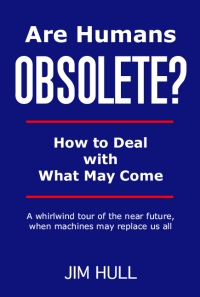. . . behavioural approaches put scientists themselves onto a god-like perch from which they can point out human failure. — Teppo Felin
How good a driver are you? Most people, when asked by researchers, say they’re above average. And that’s amusing because it’s impossible: most people can’t be above average. Apparently we’re irrational about this.
What if I offered you a random chance to win a hundred and ten bucks, but the downside was you could lose a hundred? What if I upped the ante and offered you a chance to win two hundred? Most people refuse the first offer but accept the second. But both offers give winning odds! Sounds like we’re irrational.
Suppose you had a choice between earning $50,000 a year in a world where most people earned half as much and earning $100,000 a year in a world where the average worker made more than twice that amount? If you’re like most people, you’ll choose the fifty grand over the hundred grand. As one eminent researcher put it, “How irrational is that?”
But are these choices really illogical? After all, how could our species have survived across the eons if we were unable to tease out obvious answers to simple questions? Perhaps our logic lies below the surface.
Take the income example. There’s research that suggests that, beyond about $20,000 (a basic income level that puts a roof over you and three squares into you), further gains in income don’t increase long-term happiness. But if you had a chance to be superior to others — if your status were high because of your income, even if it wasn’t all that much — you’d want to take that offer for the simple reason that high status attracts better mates, which results in more and/or healthier offspring, which gives your DNA an advantage in the gene pool. Your chromosomes know what they need, and they get a big vote in the matter.
Or look again at that betting offer: $110 against a loss of $100. Why not take it every time? After all, the odds put you ahead ten smackers every two rolls. I’ll tell you why not: because you can’t afford a possible string of $100 losses while trying to make a few ten spots. And a lot of research has shown that people don’t like to take a chance until they have two-to-one odds in their favor. Think about it: you can gain indefinitely, but you can only lose so much. Betting algorithms don’t have to pay the rent at the end of the month, so they don’t care which way the winds blow. You, on the other hand, can’t afford a series of losses — if you were somehow to lose everything (money, health, friends), you’d be a hair away from death — so it makes sense to be extra careful around losses.
Nicholas Taleb, in his book The Black Swan, shows how we ignore this at our peril. Most Wall Street financial analysts are great believers in bell curves. These shape data into graphs that tend to bulge in the middle with lots of average inputs, and then they tail off on the sides where exceptional results are more rare. Bell curves look like the outline of a 1960s flip hairstyle (you know, the one that sweeps out at the ends). Now, the problem with the analysts — and, by extension, research scientists — is that they assume all data behaves the same on paper as in the real world. If, say, the stock market took a huge dive on a given day (a “black swan” event, since it’s extremely rare), the bell curve of market closings would post a dot way out on one of the ends of the curve. So far, so good … except that the actual event will cause the entire graph to collapse when the financial world goes into a tailspin. We saw this in 2008 when the markets crashed. An emergency infusion of cash prevented massive bank failures, but it was a close thing.
In other words, certain outcomes can kill the entire game, to say nothing of your carefully nurtured investments. So, again, it makes sense to be extra cautious around events that can generate unsustainable losses.
And all those above-average drivers? Well, they weren’t exactly gathered together and asked for a show of hands; they were quizzed one at a time. How could they know they were all giving the same answer? Besides, who among us isn’t tempted to pad our resume a bit with a mild exaggeration of our skills? We’re hardwired to seek as much status as possible; a little white lie couldn’t hurt, could it?
Speaking of status: researchers who pooh-pooh our allegedly addled adducing are, themselves, nerds, which confers lower social position. It behooves them, therefore, to point out how powerfully smart they are — smarts are worth a least something in the status game — and to rub it in by crowing about how silly the rest of us are. In a way, their “humans are irrational” studies amount to elaborate attempts at one-upmanship. In the income study, above, they’re implying, “Unlike you average humans, I’m too smart to fall for status games” — which, of course, is a nice move in the status game itself.
So next time you read about yet another foible of human reasoning, take note of who’s talking. And bear in mind that our decisions are more complex and subtle than they might appear to a squint. We’re not necessarily irrational; even the average among us are sometimes smarter than they seem.
But that doesn’t mean most of us are above average.
* * * *
UPDATE: The Optimism Bias: a video lecture by researcher Tali Sharot (and she’s gorgeous)
UPDATE: “Smarter Than We Look, Part 2“
UPDATE: Blind to the obvious gorilla?
.



January 7th, 2016 → 3:21 pm
[…] I’ve critiqued this attitude elsewhere, to counter the idea that people are irrational when they fear losses more than they desire gains. (An algorithm can play Blackjack all day and lose millions on paper to no effect, but if you do this at a casino you can end up being shot at by loan sharks. So, no, it’s not wrong for a living being to be extra-cautious about the downside.) Now it’s popped up in connection with sales tactics, so it’s time to say something again. […]